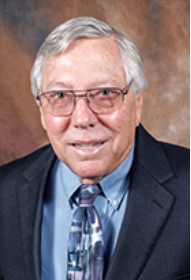A first in Yavapai Community College District Governing Board history: Kiel encourages open dialogue with constituents through innovative platform
 Yavapai Community College District Governing Board’s newly elected First District representative, William (Bill) Kiel, has launched a website to share his personal views about the community college with his constituents. The website also invites constituents to contact him directly.
Yavapai Community College District Governing Board’s newly elected First District representative, William (Bill) Kiel, has launched a website to share his personal views about the community college with his constituents. The website also invites constituents to contact him directly.
This initiative marks the first time in the Board’s history that a member has established a system to foster direct communication with the district’s residents. Mr. Kiel’s effort aims to make his personal positions about the Community College widely accessible while encouraging feedback and dialogue from his constituents.
The website already features several of his personal views on key topics, including college finances, transparency, and concerns about potential wasteful spending. Notably, one of his most interesting posts outlines his goals for the first 100 days of his term on the Board.

William (Bill) Kiel
 Yavapai Community College is offering senior citizens who are 65 and older a 50% discount on taking any credit classes. (Note exceptions below.)
Yavapai Community College is offering senior citizens who are 65 and older a 50% discount on taking any credit classes. (Note exceptions below.)  There were no grinches allowed on the Prescott and Verde Valley campuses this holiday season, thanks to the efforts of students, volunteers, and the Yavapai Community College Staff Association.
There were no grinches allowed on the Prescott and Verde Valley campuses this holiday season, thanks to the efforts of students, volunteers, and the Yavapai Community College Staff Association. The Yavapai Community College District Governing Board will hold a workshop meeting on Tuesday, January 14, 2025, at the Rock House on the Prescott Campus. The meeting will start at 9 a.m. and is expected to conclude by 4 p.m. A live stream will be available on YouTube at
The Yavapai Community College District Governing Board will hold a workshop meeting on Tuesday, January 14, 2025, at the Rock House on the Prescott Campus. The meeting will start at 9 a.m. and is expected to conclude by 4 p.m. A live stream will be available on YouTube at  The Greater Verde Valley Chamber of Commerce will hold a mixer at the Southwest Wine Center on the Verde Valley Campus January 16. The event is hosted by the Southwest Wine Center and will be catered by the Sedona School of Culinary Arts. It begins at 5:30.
The Greater Verde Valley Chamber of Commerce will hold a mixer at the Southwest Wine Center on the Verde Valley Campus January 16. The event is hosted by the Southwest Wine Center and will be catered by the Sedona School of Culinary Arts. It begins at 5:30.

 On December 13, Yavapai Community College celebrated the graduation of 52 nursing students at traditional pinning ceremonies held at the Jim and Linda Lee Performing Arts Center on the Prescott Campus. The event also marked a milestone for the college as it recognized its first cohort of students to complete the Bachelor’s Degree in Nursing.
On December 13, Yavapai Community College celebrated the graduation of 52 nursing students at traditional pinning ceremonies held at the Jim and Linda Lee Performing Arts Center on the Prescott Campus. The event also marked a milestone for the college as it recognized its first cohort of students to complete the Bachelor’s Degree in Nursing.